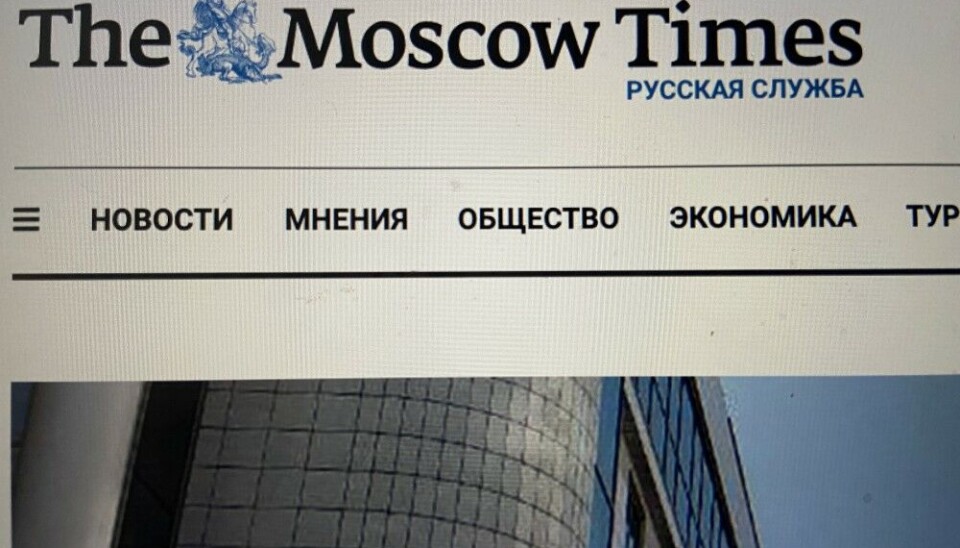
Moscow Times branded as a "foreign agent"
Russia continues its witch-hunt on independent media and is now attacking English-language media based outside Russia.
“The online publication The Moscow Times disseminated inaccurate information about the decisions taken and policies pursued by the authorities,” the Ministry of Justice said in a statement (read with VPN) on Friday.
The newspaper, well-known since the early 1990ties to foreigners staying in Moscow for its English-language print version, left Russia and relocated its journalists to neighboring countries soon after the full-scale war against Ukraine was launched last February.
Today, the newsroom is based in the Netherlands.
The Barents Observer had for several years a re-publishing agreement with The Moscow Times, including for both the English and Russian versions of the Barents Observer. The deal was halted after Russia’s all-out war on Ukraine and independent media.
Like the Barents Observer, the Moscow Times is blocked inside Russia by the state censorship agency Roskomnadzor.
A few years ago, also The Moscow Times launched a Russian-language version of its online newspaper.
The journalists of The Moscow Times wrote in a statement on Saturday that the foreign agent branding is “unjustly” and underlined “We will not give in to this pressure.”
“We see this move as an attempt to silence our independent and unbiased reporting on Russia.”
The “foreign agents” laws have since 2012 been used by Russian authorities to smear opposition groups, media and individuals who have expressed opinions challenging the narrative of the Kremlin.
When first introduced, the law targeted non-governmental organizations receiving funding from abroad. In 2017, the law was amended to include media outlets and since 2020 individuals could be listed.














